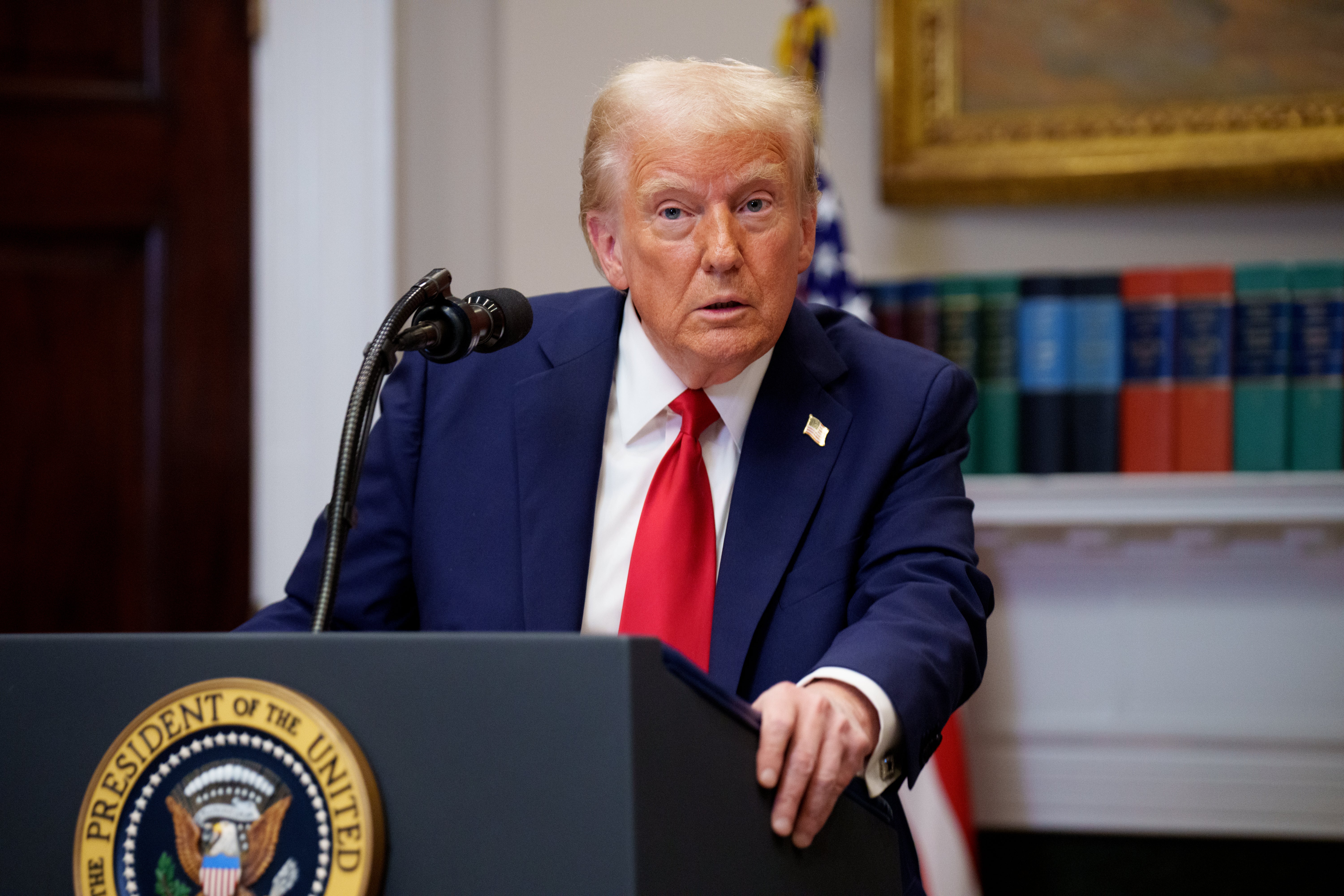President Donald Trump used his predecessor’s decision to grant preemptive pardons to his family members and others to deflect criticism for releasing violent January 6 rioters, including those who assaulted police officers at the Capitol four years ago.
Speaking at a media availability with a trio of technology executives who were announcing a half-billion dollar investment in AI data centers, Trump was asked about the release from custody of DJ Rodriguez, who during the January 6, 2021 riot drove a stun gun into the neck of Washington, D.C. police officer Michael Fanone.
After initially suggesting that Rodriguez was not among those who were pardoned, he pivoted to a non sequitur claiming that progressive prosecutors in cities with Black mayors are refusing to charge murder suspects.
“Take a look at what’s gone on in Philadelphia. Take a look at what’s gone off in L.A. where people murder people and they don’t get charged,” Trump said.

Turning the subject back to the violent criminals who assaulted police and sacked the U.S. Capitol in a futile effort to stop certification of former president Joe Biden’s 2020 election win, Trump continued: “These people have already served years in prison and they’ve served them viciously. It’s a disgusting prison. It’s been horrible. It’s inhumane. It’s been a terrible, terrible thing ... so these people have already served a long period of time, and I made a decision to give a pardon.”
The president also suggested that Biden’s decision to grant preemptive pardons to members of his family whom Trump’s allies had accused of crimes was equivalent to his granting of clemency to violent criminals.
“Joe Biden gave a pardon yesterday to a lot of criminals. These are criminals that he gave a pardon to, and you should be asking that question, why did he give a pardon to all of these people that committed crimes?” Trump noted.
The president also complained that Biden had granted pardons to members and staff of the House January 6 select committee, whom he has falsely accused of destroying federal records in violation of law.
A short time later, the president defended the decision to commute the sentence of former Proud Boys leader Enrique Tarrio, who was convicted last year of seditious conspiracy for his role in the riot and sentenced to 22 years in prison.
Trump falsely claimed Tarrio was imprisoned for defacing a Black Lives Matter flag rather than on seditious conspiracy charges
“One of the guys took down a flag that was an anti-American flag, and he was given years in jail. I don’t know the exact number, but he was given many years in jail. I thought it was very excessive, and at least the cases that we looked at, these were people that actually love our country, so we thought a pardon would be appropriate,” he said.
More than 1,500 people were criminally charged in connection with a mob’s assault on the Capitol, fuelled by Trump’s bogus narrative that the 2020 presidential election was rigged and stolen from him.
According to the Justice Department, approximately 608 defendants charged in connection with the riot faced charges of “assaulting, resisting, or impeding law enforcement agents or officers or obstructing those officers during a civil disorder, including approximately 174 defendants charged with using a deadly or dangerous weapon or causing serious bodily injury to an officer.”
As of Tuesday evening, the Federal Bureau of Prisons stated that “all individuals who had their sentence pardoned or commuted, and were under BOP custody” have been released. That number includes 211 pardoned or commuted convicts who were released over a 12-hour period.
That number included Stewart Rhodes — founder of the far-right Oath Keepers anti-government militia who was similarly convicted of seditious conspiracy and sentenced to 18 years in prison.
Alex Woodward contributed reporting from New York







